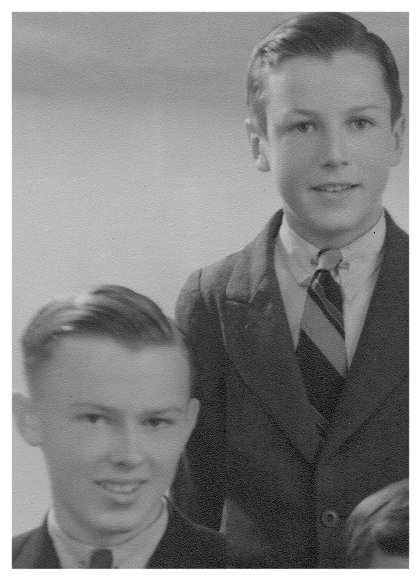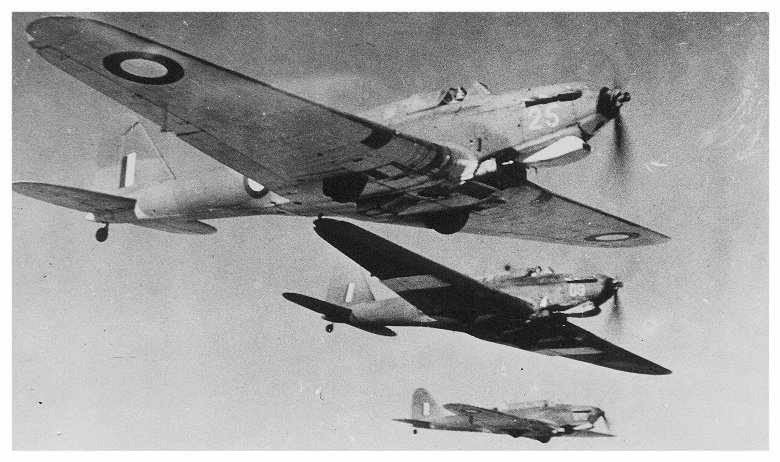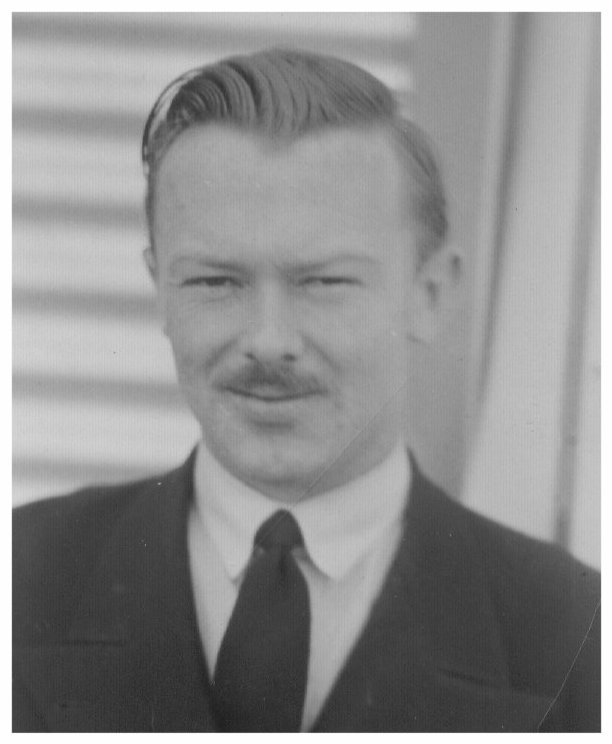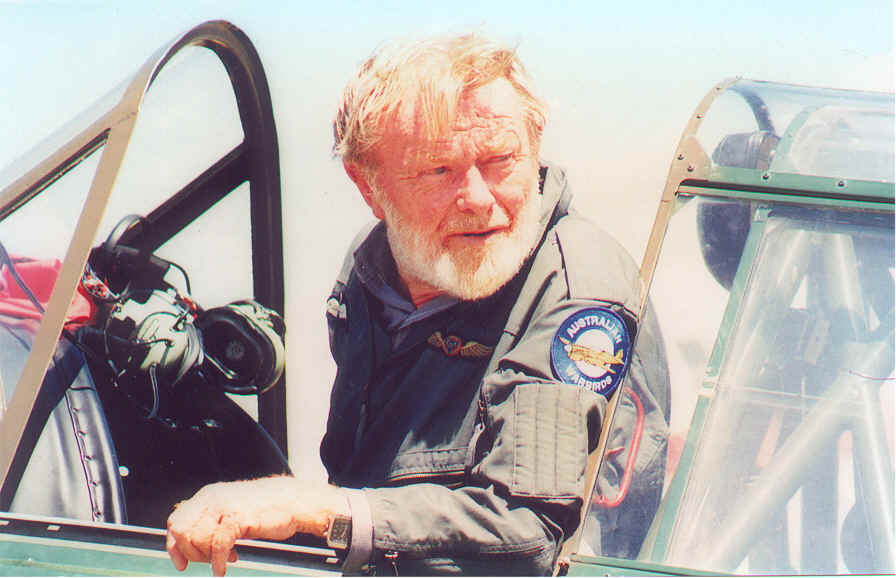
 Owen was my big brother always two years older; a gap and status he retained all his life. In childhood big brothers are quite important to siblings, big brothers are pioneers blazing trails for younger fry to follow. He escorted me to kindergarten with my new schoolbag banging my legs and did escort duty again when I commenced primary school at De La Salle Brothers, Orange. Later still, he helped settle me in to boarding school at Christian Brothers College, Waverley. We left that establishment in December in 1940 just as the war in Europe was hotting up.
Owen was my big brother always two years older; a gap and status he retained all his life. In childhood big brothers are quite important to siblings, big brothers are pioneers blazing trails for younger fry to follow. He escorted me to kindergarten with my new schoolbag banging my legs and did escort duty again when I commenced primary school at De La Salle Brothers, Orange. Later still, he helped settle me in to boarding school at Christian Brothers College, Waverley. We left that establishment in December in 1940 just as the war in Europe was hotting up.
In between these events Owen helped introduce me to climbing trees for birds
eggs, swimming in the local creek, riding bicycles and learning to shoot a
"Daisy" airgun. I also learned other valuable crafts like how to pinch fruit from the local orchards without getting sprung. Young gentlemen growing up in a country town needed to avoid various authorities who tried to inhibit kids' progress towards maturity. There was Father Kelly from the church, Mr Bastick who protected Cook Park, the local police Sergeant and his staff, not to mention mothers and fathers.
During this growing up period Owen and I had developed an enduring love of
aeroplanes. Our heroes were not rock stars or footballers or cricketers but aviators, people such as Kingsford-Smith, P G Taylor, Bert Hinkler, Amy Mollison, Scott and Black and even "Wrong Way" Corrigan. We avidly read of their exploits, and pasted their stories into scrap books never dreaming that one day we would join them in the air.
Back then to 1941: at 18 years old, Owen joined the army. He really wanted to be in the RAAF but in the early years of WW2 the airforce was quite picky about education standards for aircrew. A year later Owen was able to transfer across to the RAAF. He graduated as a Sergeant Pilot at Bundaberg, Queensland and was posted to Port Pirie, South Australia as a staff pilot.
 Port Pirie was an Air Gunners' School. Pilots flew old British Fairy Battle planes, towing drogues behind them on long steel cables. Another Fairy Battle would make passes at the drogue and student gunners would spray bullets around hopefully hitting the drogue. For the tow pilot there were many anxious moments. Owen survived,was commissioned as a Pilot Officer and was posted to the United Kingdom for
operational flying.
Port Pirie was an Air Gunners' School. Pilots flew old British Fairy Battle planes, towing drogues behind them on long steel cables. Another Fairy Battle would make passes at the drogue and student gunners would spray bullets around hopefully hitting the drogue. For the tow pilot there were many anxious moments. Owen survived,was commissioned as a Pilot Officer and was posted to the United Kingdom for
operational flying.
At this time, early 1944, once again following in his footsteps, I was about to be awarded my wings at RAAF Point Cook. On his way to embarkation, Owen passed through Melbourne and we met briefly for dinner one night. We wished each other luck for the rest of the war, he asked if I had any money, borrowed five pounds, and we parted.
 Arriving in the United Kingdom, Owen joined a surplus of pilots and spent some time on the ground before completing his Wellington Operational Training Unit and started his Halifax Bomber training. Before this training was complete, the European war finished. He laughingly said his most dangerous time in the war was being on leave in London, and drinking beer in pubs when the German buzz bombs were dropping. Returning to Sydney in 1946, Flight Lieutenant Owen V O'Malley was unscathed by five years of war service but he was marked by a big, ginger, RAF type moustache.
Arriving in the United Kingdom, Owen joined a surplus of pilots and spent some time on the ground before completing his Wellington Operational Training Unit and started his Halifax Bomber training. Before this training was complete, the European war finished. He laughingly said his most dangerous time in the war was being on leave in London, and drinking beer in pubs when the German buzz bombs were dropping. Returning to Sydney in 1946, Flight Lieutenant Owen V O'Malley was unscathed by five years of war service but he was marked by a big, ginger, RAF type moustache.
Within a year he was back in the air flying for the newly formed Trans Australia Airlines. He remained with them for some thirty years when cancer grounded him. He fought, and beat, his Lymphoma and for a period, boats replaced planes in his life. Again, I had followed Owen's path and had become a pilot with Qantas Airways so I knew how he felt about being grounded. But all was not lost, he passed his medical checks, Jack Curtis introduced him to the Wirraway group and Owen became a reborn airman spending many happy hours airborne again!

 Owen now has left this space
Owen now has left this space
his sails are furled
wheel chocks in place
his parting swift, no time to tell
Each one of you
his last farewell!
My brother's spirit has gone away
transported there by Wirraway
he will not hear the engine's roar
no longer bank, and glide, and soar
For us it's time for evermore
to quietly close, his hangar door.
Poem by Dennis O'Malley





